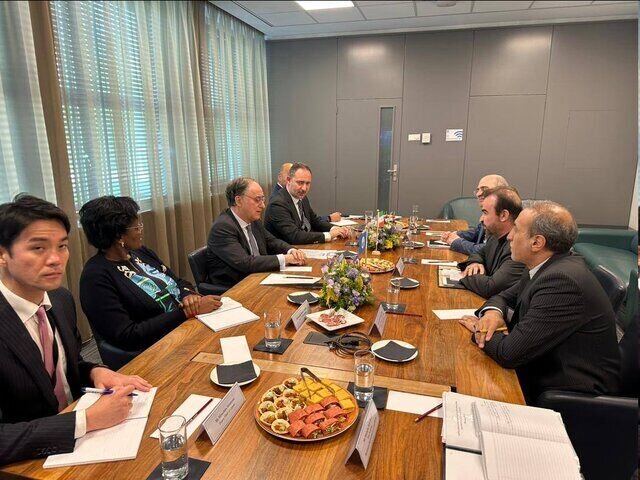Iran says is biggest victim of chemical weapons in modern history

TEHRAN – Reza Najafi, the deputy foreign minister of Iran for legal and international affairs, has said that the Islamic Republic has been the biggest victim of chemical weapons.
Najafi made the remarks during a meeting on Tuesday with Fernando Arias, the director general of the Organization for the Prohibition of Chemical Weapons (OPCW). In the meeting, the two sides exchanged views on the fields of strengthening cooperation, according to IRNA.
Najafi explained the effects of the cruel unilateral sanctions of the United States on the health condition and treatment of the chemical veterans of Iran. He asked the director general to continue his efforts to meet the urgent medical needs of chemical veterans.
Emphasizing that Iran is the biggest victim of chemical weapons in modern history, Najafi pointed out that the goal and purpose of the OPCW will not be achieved without the complete destruction of all types of chemical weapons stockpiles and the universality of the convention.
Najafi also delivered Iran’s statement at OPCW’s fifth review conference.
“The CWC is founded on a delicate balance between the rights and obligations of the Parties, thus ensuring the full, effective, balanced and non-discriminatory implementation of all pillars of the Convention is not an option or optional but an inevitable must; ensuring the Convention’s universality is vital for achieving the goal of a world free from chemical weapons,” he said at the conference.
He added, “Politicization is absolutely poisonous for both, the Convention and the Organization; it undermines their integrity and credibility and polarizes the States Parties; indeed, abusing the OPCW for advancing the geopolitical rivalry and interests of a certain group of States is an absolutely destructive approach; to avoid further polarization of the Parties, this must stop. Constructive dialogue and cooperation as well as paying due consideration to the technical and professional nature of the work is vital for the credibility of both the CWC and the OPCW as well as promoting their effectiveness; this is the right approach that must be pursued, particularly in regard to the Syrian file.”
Najafi continued, “Addressing the needs of chemical weapons victims must be accorded a high priority; acknowledging the presence, at this Conference, of a number of Iranian citizens who are the victims of chemical weapons -- provided by Western States and used by Saddam-- I must stress that imposing sanctions on their needs, particularly the medical equipment and medicine they need to alleviate their sufferings and at least to breathe slightly normally, is absolutely unlawful and extremely inhumane; such sanctions is but an insult to their injury; stop torturing them.”
He noted, “Over the past 26 years, we made great accomplishments in the elimination of chemical weapons; it is however a source of deep concern that, during the same period, we have witnessed a constant lack of expected progress in such important areas as assistance, protection and international cooperation; this cannot and must not continue.”
Najafi also proposed a number of points with the purpose of outlining a comprehensive and action-oriented roadmap for the next five years. He proposed, among other things, the restoration of “the technical nature of the Organization in fulfilling the mandate of the Convention, including through addressing the verification related issues in full accordance with the provisions of the Convention and its Verification Annex, as well as avoiding non-consensual and political Ad-hoc mechanisms in this regard.”
“As a major victim of the systematic use of chemical weapons in contemporary history, and fully committed to its obligations under the Convention, the Islamic Republic of Iran attaches great importance to the full, effective, balanced and non-discriminatory implementation of all provisions of the Convention and professional operation of the Organization,” he said.
